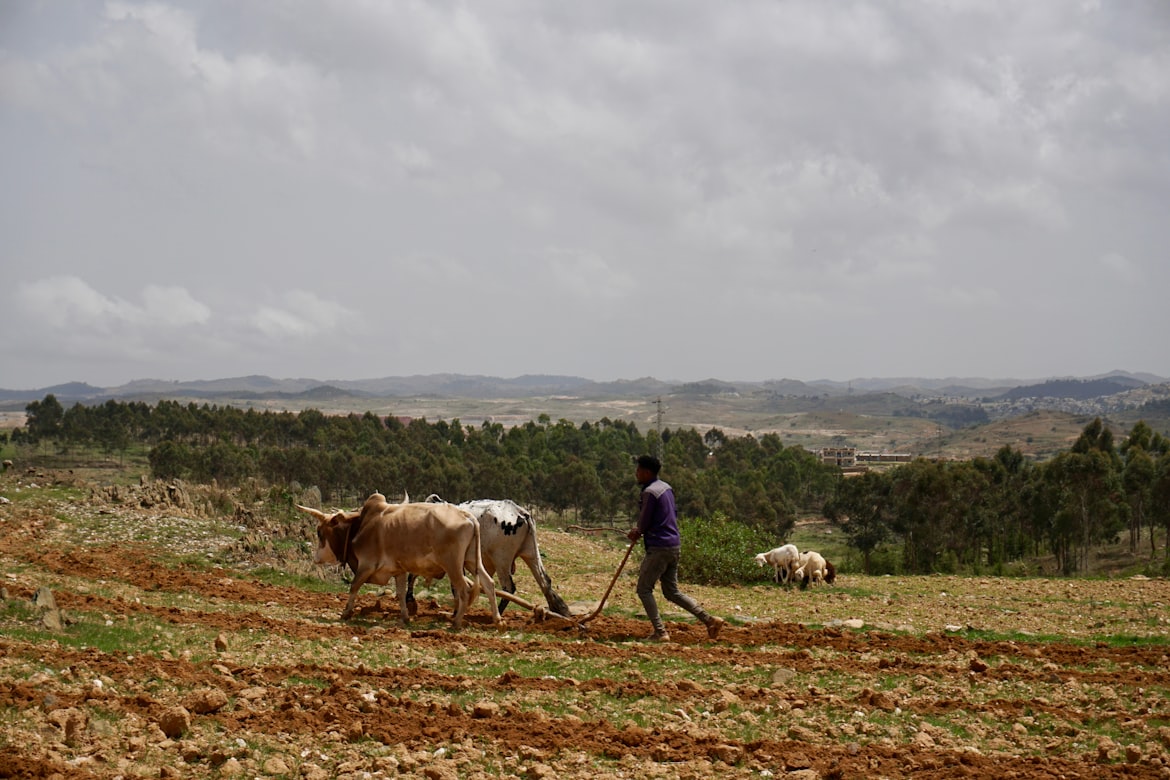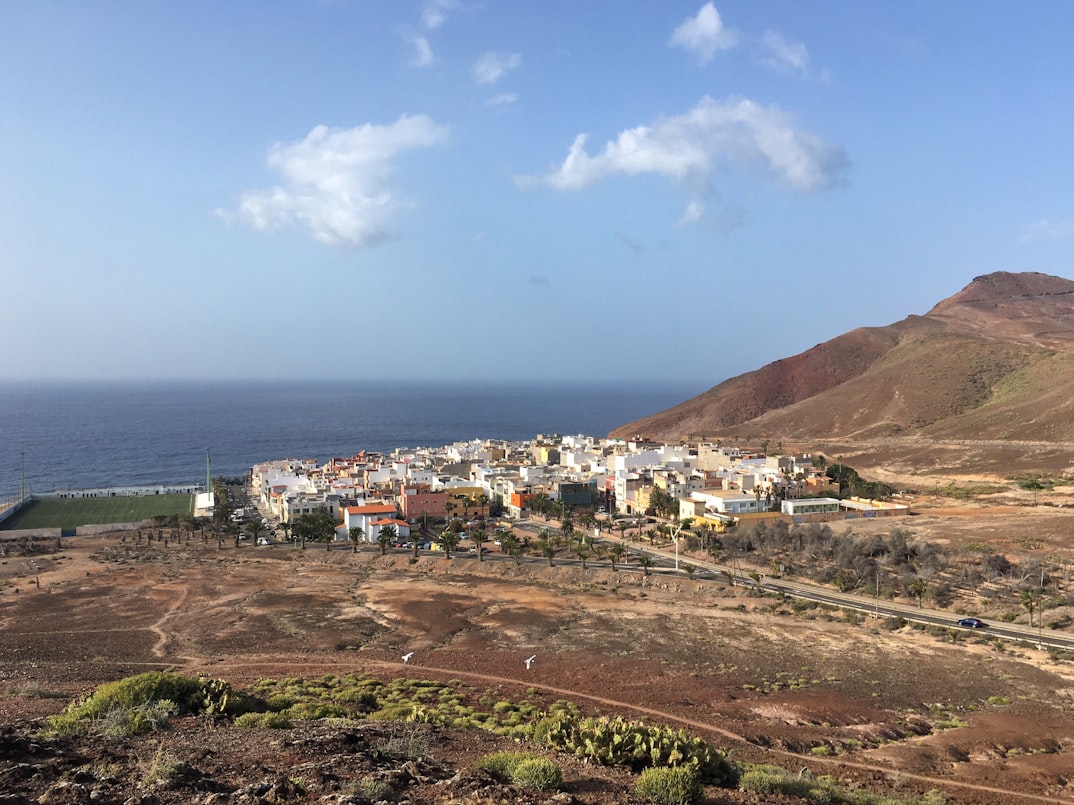Top Attractions
Eritrea boasts a diverse landscape and rich cultural heritage that make it a rewarding destination for adventurous travelers. Asmara, the capital, is a UNESCO World Heritage Site celebrated for its remarkably preserved Italian modernist architecture; strolling through its wide boulevards feels like stepping back in time. The port city of Massawa, with its Ottoman-era buildings and coral architecture, offers a unique coastal charm. Travelers can explore the Dahlak Archipelago, a group of islands in the Red Sea known for pristine beaches and spectacular snorkeling opportunities. The highland town of Keren is famous for its colorful markets and camel caravans, while Debre Bizen Monastery offers breathtaking views for those willing to brave the uphill hike.
Local Dishes
Eritrean cuisine shares many similarities with Ethiopian food but with its own twist. Injera, a spongy flatbread, is a staple and often served with tsebhi (spicy meat stews) or lentils and vegetables. Zigni, a fiery beef stew made with berbere spices, is a favorite among locals and visitors alike. For something lighter, try shiro, a smooth chickpea-based dish often served with injera. Seafood is also popular, especially in coastal towns like Massawa, where you can enjoy grilled fish and calamari seasoned with local spices.
Transportation Tips
While public transportation in Eritrea is available, it can be limited and unpredictable. Shared minibuses and taxis are common in Asmara and other major towns, but schedules may not be posted, and vehicles can become overcrowded. Hiring a private driver or arranging transportation through your accommodation is often the most reliable and comfortable way to explore the country. The Asmara-Massawa railway is a historical treasure, and although it only operates occasionally for tourists, it's worth experiencing if available.
Budget Travel Tips
Traveling on a budget in Eritrea is possible but requires some planning. Accommodations range from basic guesthouses to mid-range hotels, with many offering affordable rates. Eating at local cafes, known as “makanas,” can save money while providing authentic meals. Bargaining is acceptable in markets and for services, but always be respectful. Internet access and credit card use are limited, so bring enough cash in USD or Euros to exchange. Walking is a great way to explore Asmara’s colonial architecture without spending money.
Safety Info
Eritrea is generally safe for tourists, with low levels of petty crime. However, travelers should remain cautious and respectful of local customs. Some areas, particularly near the borders with Ethiopia and Djibouti, may be restricted, so always check with local authorities or your embassy before traveling. It's also important to carry identification at all times, as police checkpoints are common. Political sensitivity is high, so avoid discussing government matters or taking photos of military personnel or installations.
Cultural Etiquette
Eritrean culture places a strong emphasis on respect and hospitality. Greetings are important and usually involve a handshake and inquiry into one’s well-being. When entering someone’s home, it is polite to remove your shoes. Dress modestly, especially in rural areas and religious sites—women should wear long skirts or dresses, and men should avoid shorts. Public displays of affection are rare and generally frowned upon. Photography should be done with permission, especially in remote communities.
Travel Style Fit
Eritrea is best suited for cultural explorers, history enthusiasts, and off-the-beaten-path adventurers. Those looking for unique architecture, rich local traditions, and minimal tourist crowds will find this destination deeply rewarding. While it may not cater well to ultra-luxury travelers or digital nomads requiring constant connectivity, it’s ideal for travelers with patience, curiosity, and a spirit of discovery.

Best Time to Visit
The best time to visit Eritrea is from October to March, when the weather is cooler and more comfortable, especially in the lowland and coastal areas. The highland areas, including Asmara, have a temperate climate year-round, but summer months can be particularly hot in places like Massawa. Religious festivals such as Meskel (Finding of the True Cross) and Timket (Epiphany) are vibrant times to experience local culture and tradition.
Accommodation Recommendations
Low-Budget Travelers: Those traveling on a tight budget can consider staying at Africa Pension in Asmara, a simple yet clean guesthouse known for its friendly staff and central location. In Massawa, Gurgusum Beach Hotel offers beachfront access at an affordable rate, especially for backpackers who don’t mind modest accommodations.
Mid-Range Travelers: For travelers seeking comfort without breaking the bank, Crystal Hotel in Asmara is a popular choice, offering clean rooms and a restaurant with local cuisine. In Keren, Sarina Hotel offers a convenient base for exploring the highlands and local markets, with amenities like air conditioning and in-room dining.
Luxury Travelers: For those wanting an upscale experience, the Asmara Palace Hotel provides a comfortable and modern stay with a pool, business center, and fine dining. Although luxury options in Eritrea are limited compared to other countries, this hotel is among the best for travelers who prioritize comfort and service.
Languages Spoken
Tigrinya is the most widely spoken language in Eritrea and is used in government and education. Arabic and English are also commonly spoken, especially in urban areas and for official purposes. Other languages include Tigre, Afar, and Saho, reflecting the country’s ethnic diversity. Learning a few greetings in Tigrinya can go a long way in building rapport with locals.
Currency
The official currency in Eritrea is the Eritrean Nakfa (ERN). Credit cards are rarely accepted, and ATMs are almost nonexistent, so travelers must carry sufficient cash for their entire trip. Foreign currency, particularly US dollars and euros, can be exchanged at banks and authorized exchange bureaus. Always keep your exchange receipts, as they may be required for converting unused Nakfa back to foreign currency.
Common Traveler Mistakes to Avoid
A common mistake is underestimating how limited internet access and mobile connectivity are in Eritrea; travelers should download maps and important information in advance. Another oversight is not carrying enough local currency—since credit cards are rarely accepted, this can lead to challenges in remote areas. Visitors should also be cautious about taking photos of government buildings or infrastructure, as this can lead to questioning or fines. Lastly, some travelers forget to factor in the heat in lowland areas, so it’s important to stay hydrated and wear sun protection.
Essential Apps & Tools
Due to limited mobile data, offline apps are crucial. Maps.me or Google Maps (with offline mode) help navigate cities. Google Translate can assist with basic Tigrinya and Arabic phrases. Currency converter apps like XE are helpful for converting Nakfa. VPN apps may improve internet access if you're relying on hotel Wi-Fi. Since you’ll be offline often, having all bookings and key documents saved as PDFs is wise.
Suggested Itinerary Styles
A well-balanced Eritrea itinerary might start with 2–3 days exploring Asmara’s art deco buildings, coffee shops, and museums. Then, spend a couple of days in Massawa enjoying the Red Sea and coral architecture. From there, head to Keren for its local flavor, camel market, and mountainous backdrop. For adventure seekers, a boat excursion to the Dahlak Archipelago can provide a tranquil retreat with diving or snorkeling opportunities. This itinerary blends history, nature, and culture while remaining flexible to account for local transport limitations.
Fun Facts
Eritrea is home to one of the most well-preserved examples of early modernist architecture in Africa, thanks to its history as an Italian colony. The Asmara-Massawa railway is a marvel of engineering, constructed in the early 20th century and still operating on steam locomotives for special excursions. Eritrea has one of the lowest car ownership rates in the world, making it ideal for walking and cycling. Its Red Sea coastline is also a haven for marine biodiversity, largely untouched by mass tourism.
